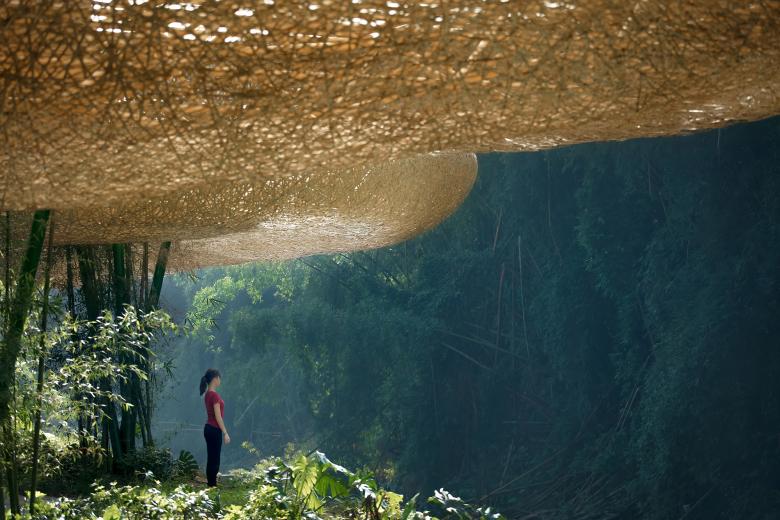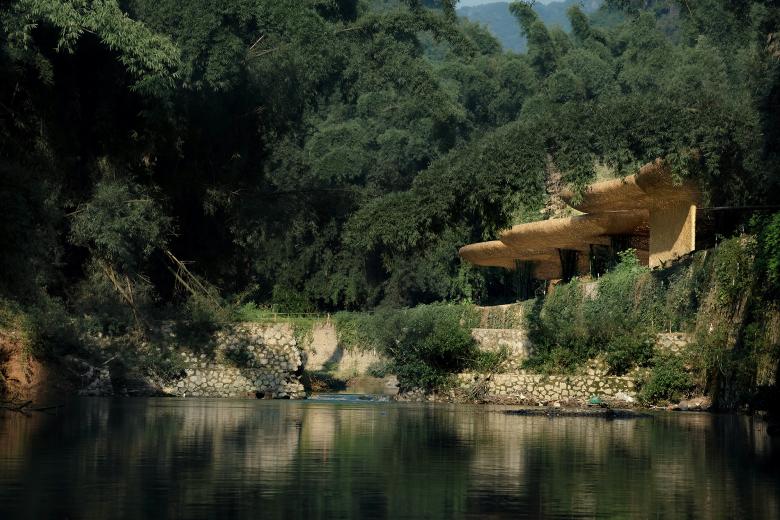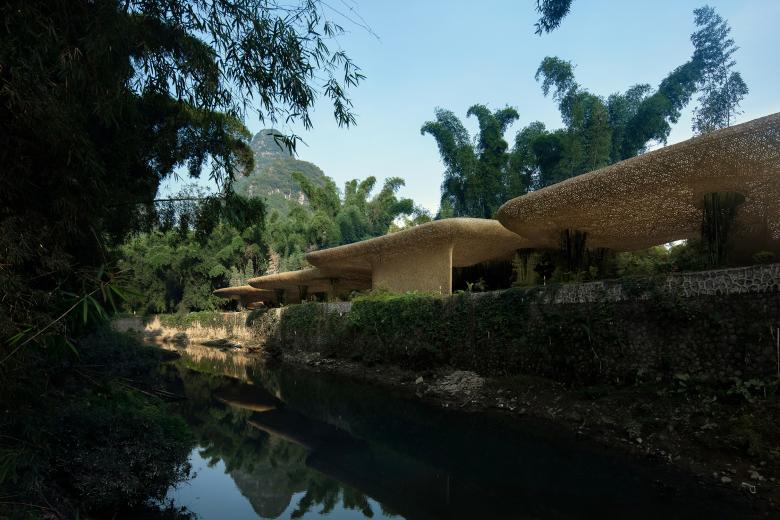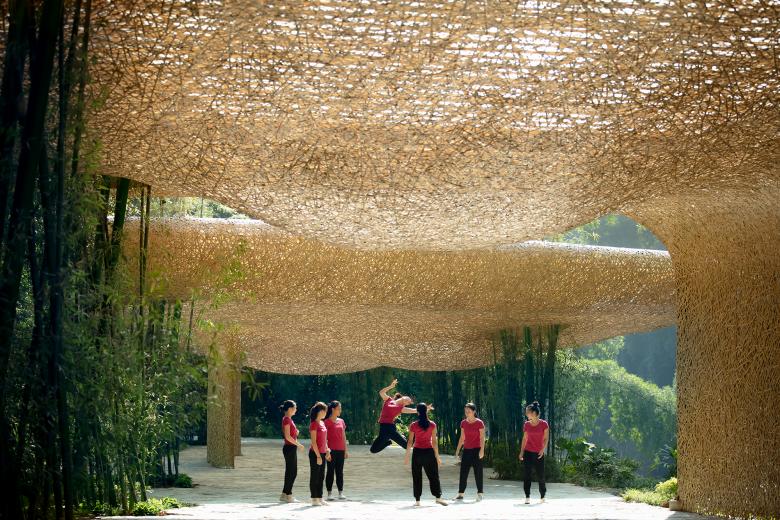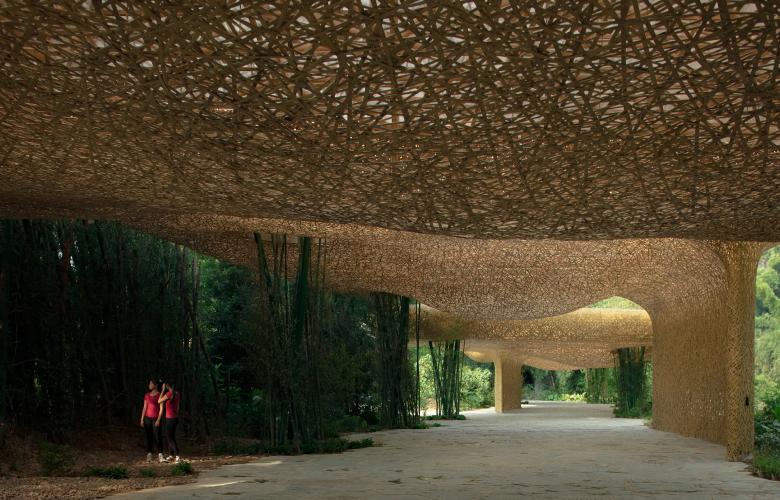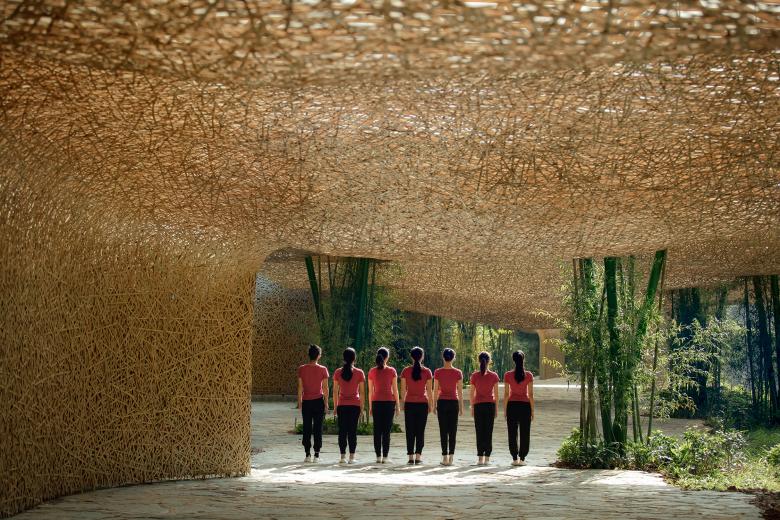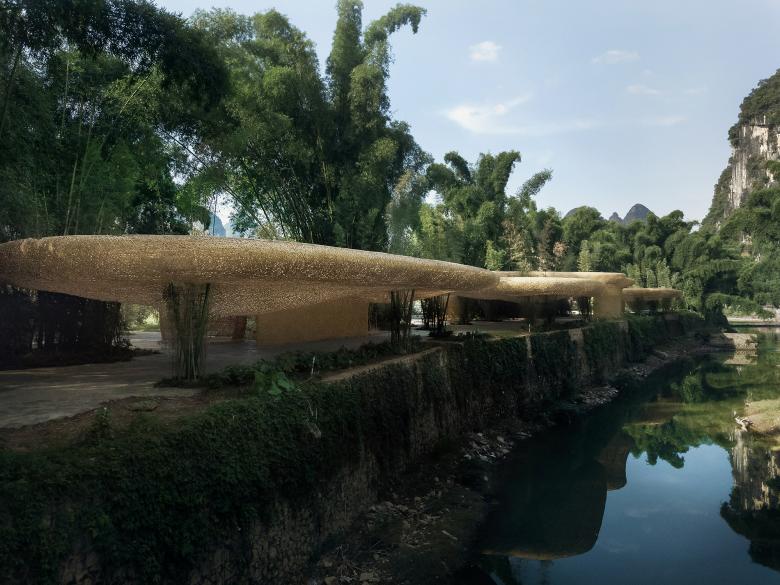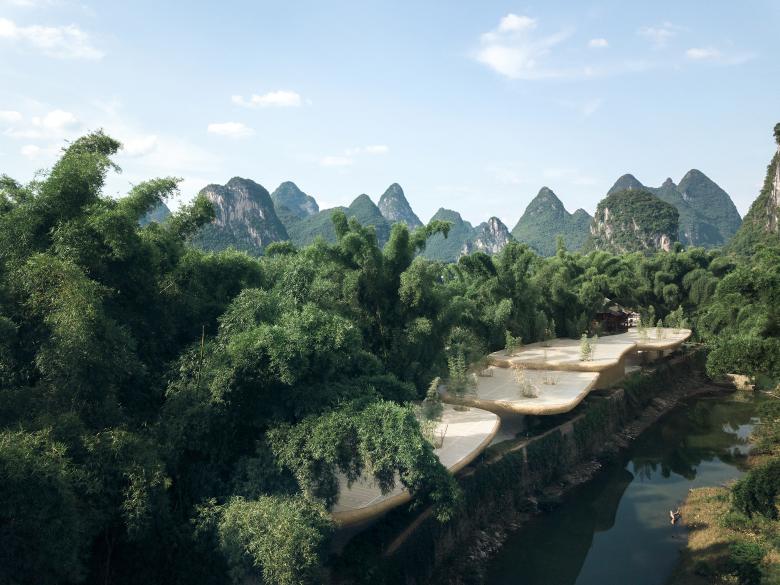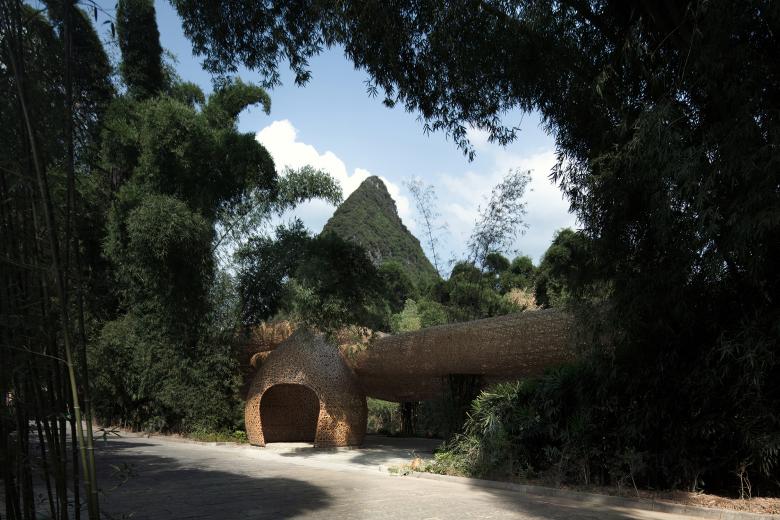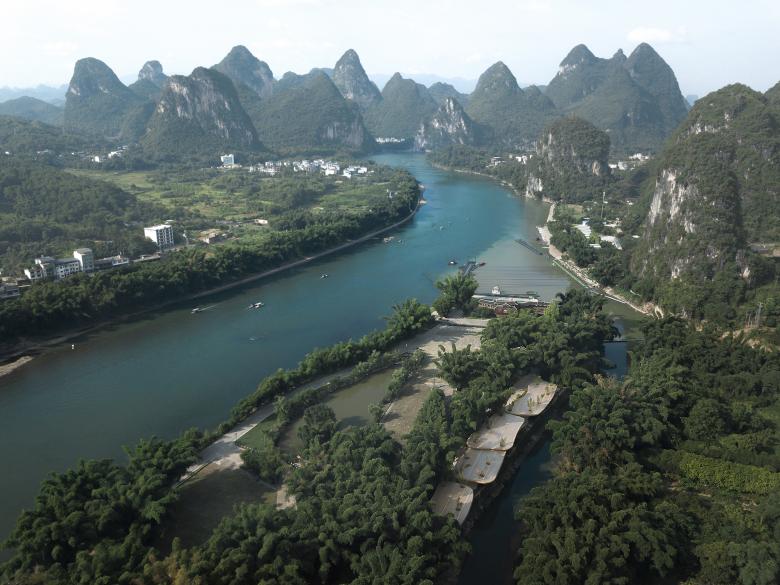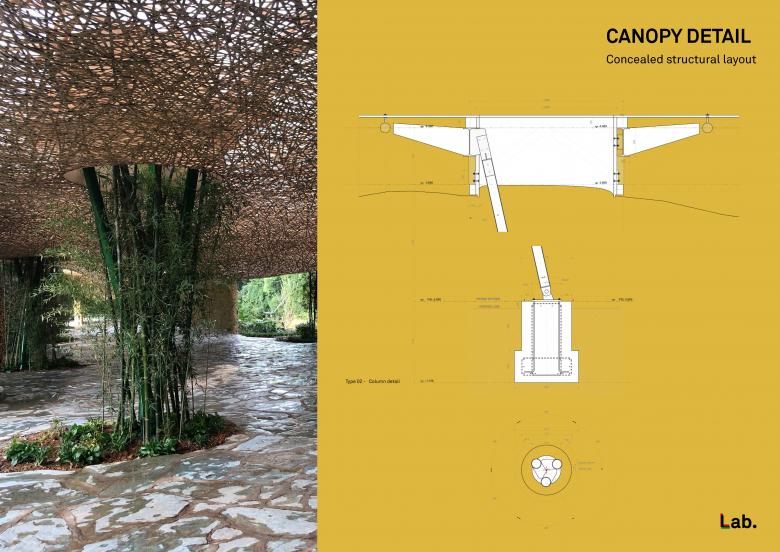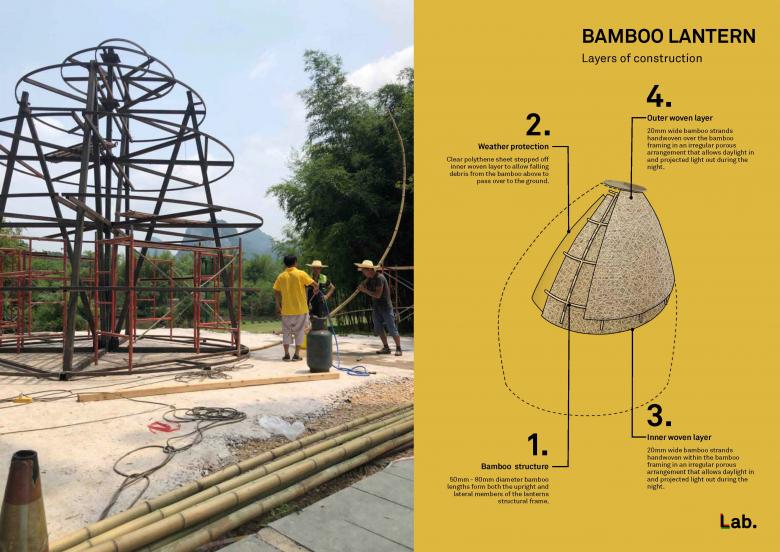Bamboo Clouds Float in the Light
Eduard Kögel
8. diciembre 2020
Arch-Exist Photography
The city of Yangshuo in Guangxi Province lays about 65 kilometres south of Guilin and is surrounded by a dramatic landscape of towering karst mountains, which as a tourist attraction have been a highlight of domestic and foreign visitor programs for decades. The karst landscape has been on the UNESCO list of world cultural heritage since 2014. With a poetic installation at a dramatic location along the Li River, the architects at IILab. have added a new experiential narrative to this landscape.
Project Location: Yangshuo, Guilin, China
Site Area: 90,000 m2
Construction Area: 1,900 m2
Project Status: Completed
Project Timeline: May 2018 – July 2020
Project Client: Impression Sanjie Liu
Architectural Design Firm: llLab.
Architectural Design: Hanxiao Liu, Henry D'Ath, Lexian Hu, Alyssa Tang, Chaoran Fan, Luis Ricardo, David Correa
Project General Contractor: Gcps Interior Decoration Finishing Ltd., Project Management Team: Lihua Mi, Dalin Chai, Hao Zhang, Guoyang Wan
Structural Design: Lalu Partners Structure Consulting Bamboo Lantern, Bamboo Weaving Technique, Structural Research Management: Shanghai Tan Tan Props LTD.
Research Team: Qimin Cui, Geng Meng Bamboo Lantern, Bamboo Weaving and Structure Installation: Shanghai JD Bamboo Architectural Design & Engineering Ltd.
Ground Paving Execution: Haiming Liu, Jing Liu, Changfa Cai, Hequan Yu, Huofeng Liang, Hekun Yu, Daizhong Yu, Xiuping Tao, Baoxing Li, Ruoque An
Photography: Arch-Exist Photography
Arch-Exist Photography
In 2004 the famous director Zhang Yimou staged the story of Liu Sanjie from the Southern Song Dynasty (1127–1279) as an open-air spectacle with 600 participants under the title Impression Sanjie Liu. This 70-minute show takes place along the edge of the Li River in front of a viewing platform that can hold 10,000 spectators with the mountains as a backdrop that is illuminated at night.
Arch-Exist Photography
There are currently two areas where the audience gathers: at the entrance and pagoda where visitors arrive and at the main stage on the bank of the Li River at the other end of the island. Little interaction takes place between these two points. Two types of installations were introduced along this route. The first are woven bamboo lanterns dispersed throughout the areas where guests circulate, and the second is a woven canopy made of bamboo, under which pedestrians walk from one side of the island to the other.
Arch-Exist Photography
A lot of bamboo grows along the Li River. This inspired the architects of IILab. to work with this material. Bamboo is a flexible, very fast growing grass that has been used in architecture and design since ancient times. Because of its low weight and high strength, it is often used for scaffolding, or in traditional architecture of ethnic groups. Mats, baskets and vessels were traditionally woven from fine bamboo strips.
Arch-Exist Photography
The architects developed the idea of weaving bamboo to create a cloud-like organically shaped canopy above the circulation path that inscribes a new dimension of experience in the natural landscape. Each of the woven bamboo lanterns that light the way in the evening is unique, their form shaped by the many irregularities that result from handwork. The bending of bamboo is made possible by heat, which also leaves its traces on the material. Local artisans wove the shapes without using glue or other fasteners. The end product has something individual that is shaped by the material and the making process.
Arch-Exist Photography
The 140 meters long canopy is supported by relatively few columns, around which bamboo plants grow towards and through openings in the canopy. During sunshine, the effect of dappled shadows cast on the ground creates an idiosyncratic, poetic space that turns the path into a stage. In this way, the connection between the entrance and the main stage becomes an entertaining experience that resonates with the performance on the stage.
Arch-Exist Photography
The ease with which the canopy floats within a bamboo forest and integrates itself with its organic forms into the dramatic mountain landscape gives visitors the feeling of being integrated in a natural space that nontheless reinterprets traditional cultural values as a landscape of memories. The use of the local material and its transformation through traditional craftsmanship demonstrate impressively how the new can emerge from the existing without the need for any kind of imitation.
Arch-Exist Photography
Arch-Exist Photography
Arch-Exist Photography
LLLab.
LLLab.
LLLab.
Artículos relacionados
-
Spotlight on Italy
16/5/18
-
Bologna Shoah Memorial
20/7/15
